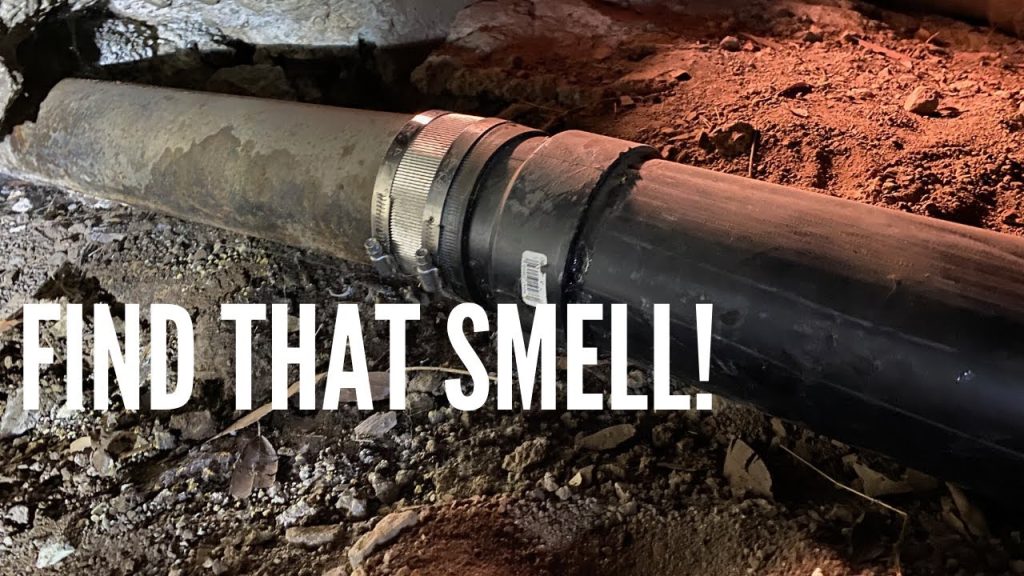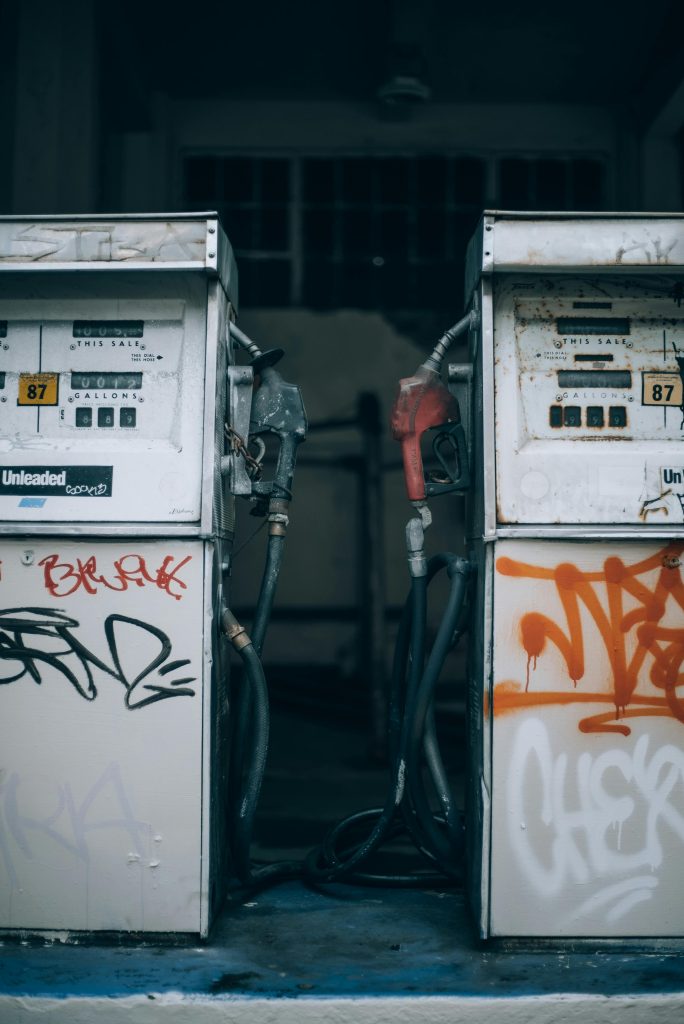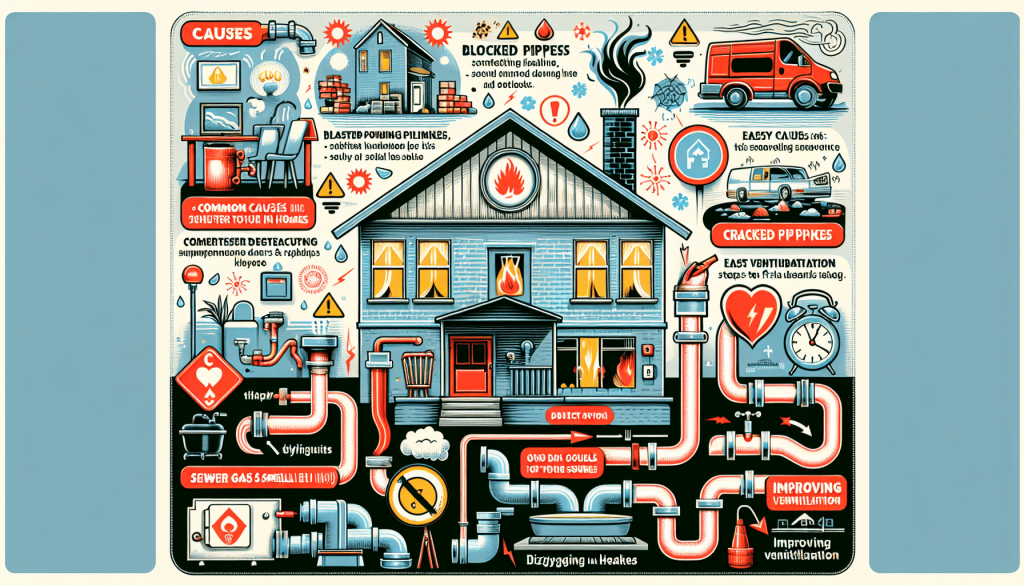In the video titled “How to Find and Fix a Sewer Gas Smell in Your House or Yard” by The Grumpy Plumber, Jim shares valuable tips on identifying and eliminating sewer gas smells in your home. He also discusses the possibility of experiencing this unpleasant odor outside your house. The video covers various topics related to finding and fixing sewer gas smells, including the main causes for the smell, sewer gas from outside the house and how to address it, dealing with a rotten egg smell in the shower, sewer smell in the basement or garage, and long-term fixes for sewer smells in the house. The Grumpy Plumber, with his 48 years of experience, offers practical advice for resolving these issues. So, if you’ve been wondering why you have a sewer gas smell in your house or outside, this video provides the answers you need.
Hi, I’m Jordan, and I’m here with my dad Jim, the Girl fee plumber. We’re excited to address the common concern of where that sewer gas smell might be coming from in your house and how to locate and solve the problem. With nearly 50 years of plumbing experience between us, we aim to help people with their plumbing issues by sharing practical advice and tips through this channel. From broken traps to evaporated water in unused fixtures, we’ll break down the possible causes and provide simple solutions to get rid of that unpleasant sewer gas smell. And hey, just a little heads up, Dad’s a bit grumpy, so be sure not to tick him off!

Main Cause for Sewer Gas Smell
Have you ever wondered why your house sometimes has a foul sewer gas smell? Well, the main cause of this unpleasant odor is often the water evaporating from unused traps. You see, every fixture in your house, such as sinks, showers, and toilets, has a trap. This trap holds water to seal off any sewer gas from entering your home. However, if a fixture isn’t used frequently, especially during the winter when the heat is on all the time or even during the summer with constant air conditioning, the water in the trap can evaporate. When this happens, the sewer gas can escape into your house, leaving you with that dreadful smell. It’s important to note that in cases of a broken trap, you would notice water on the floor or in a basement, so it’s usually just water evaporating from unused traps that causes the odor.
Sewer Gas from Outside Your House and How to Fix It
Sometimes, the sewer gas smell can also originate from outside your house. If you have a septic tank, downdrafts can occur, allowing the sewer gas to escape. Downdrafts happen when the wind comes over the top of your house, causing the sewer gas to be pushed back down towards your yard and ultimately into your home. However, there is a simple fix for this issue. You can redirect the pipe that leads into the septic tank by adding an elbow below the waterline. This forms a trap-like structure that prevents the sewer gas from escaping. This fix is particularly helpful for homes on hills or with poor airflow. So, if you ever smell sewer gas while sitting on your front porch, chances are this solution will solve your problem. It’s an easy fix that just requires some simple adjustments to your septic tank pipe.

Rotten Egg Smell in the Shower
Another common source of sewer-like odors in houses is the rotten egg smell that can occasionally occur in showers. Many people mistake this smell for sewer gas, but the actual cause is typically the presence of magnesium sulfate (commonly known as magnesium ride) in the water heater. This compound can produce a distinct sulfuric smell, resembling rotten eggs. Luckily, there are a few solutions to remove this smell. You can either plug off the source of the smell or install a new water heater. It’s always a good idea to consult a professional plumber to determine the best course of action for your specific situation.

Sewer Smell in Your Basement or Garage
Have you ever noticed a sewer smell lingering in your basement or garage? This can be quite bothersome, but the cause might be due to traps in concrete slabs that aren’t used frequently. Just like the unused traps in fixtures, the water in these traps can also evaporate, leading to the release of sewer gas. Fortunately, there’s an effective solution to eliminate the smell. By pouring antifreeze into the traps, you can prevent the water from evaporating. It’s recommended to use RV antifreeze, as it doesn’t evaporate easily and won’t stain or attract animals. So, if you’re experiencing a sewer smell in your basement or garage, try pouring some antifreeze into the unused traps and see if that does the trick.

What to Do If You Have a Sewer Smell in Your House for a Long-Term Fix
While the fixes mentioned earlier can provide immediate relief from sewer smells, it’s always a good idea to take preventive measures for a long-term solution. Here are a few steps you can take:
-
Check all fixtures regularly: Make it a habit to inspect the traps in your sinks, showers, and toilets. Ensure that they always have enough water to prevent the evaporation of the trap seal.
-
Keep trap seals filled with water or antifreeze: If you have fixtures that aren’t used frequently, such as in a guest bathroom or in a basement, maintain the trap seals by regularly filling them with water or antifreeze. This will help prevent any sewer gas from escaping into your home.
By following these steps and being proactive in maintaining your plumbing system, you can reduce the chances of experiencing sewer smells in your house in the future.

Summary on Fixing That Sewer Smell
To summarize, sewer gas smells in your house or outside can be unpleasant and annoying, but they can be fixed. The main cause of these smells is often the water evaporating from unused traps, which allows the sewer gas to escape. Additionally, sewer gas smells can also originate from outside your house due to downdrafts, especially if you have a septic tank. By redirecting the pipe leading into the septic tank, you can prevent the escape of sewer gas. Another common issue is the rotten egg smell in showers caused by magnesium sulfate in the water heater. This can be resolved by either plugging off the source of the smell or installing a new water heater. Furthermore, if you experience sewer smells in your basement or garage, traps in concrete slabs that aren’t used frequently could be the culprit. Pouring antifreeze into these traps can eliminate the smell. For a long-term fix, regularly check all fixtures and keep trap seals filled with water or antifreeze. By identifying the cause of the smell and implementing the appropriate fixes, you can enjoy a fresh and odor-free living space.

